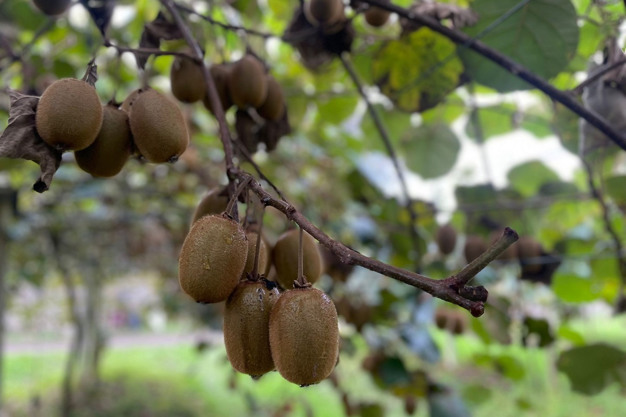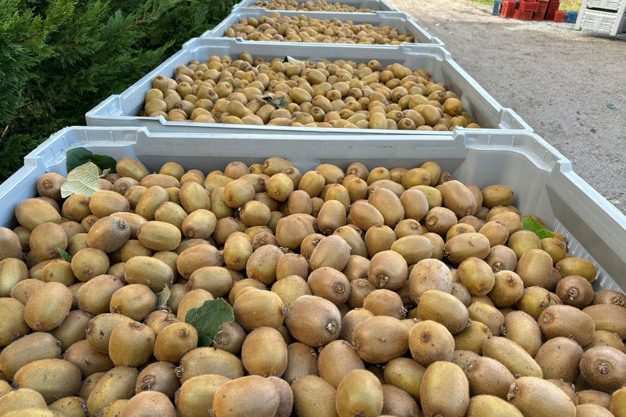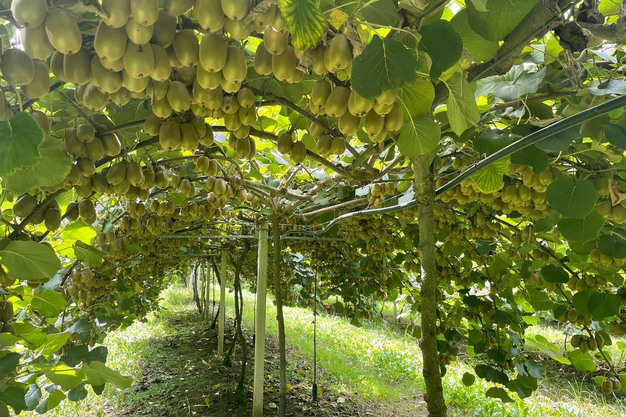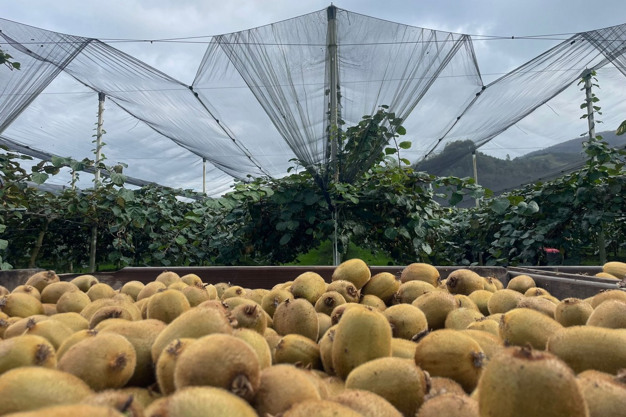The kiwifruit harvest is underway in the north of Spain, where the insufficient amount of chill hours last season has caused a drop in the production that has been most noticeable in the south of the Galicia region. "This drop has mostly affected the green Hayward kiwifruit. In the area of Asturias and Cantabria we were expecting a drop which in the end has been estimated at between 20 and 30% compared to a normal season, but in Galicia it has been much more pronounced because they had even fewer chill hours," says Rafael Olivo, from Kiwis La Rodriga. "The production is said to have dropped by around 40-50%, and in areas in the south of Pontevedra, this percentage reaches up to 60%. Meanwhile, Portugal, which has had a fairly mild winter, expects a comparable drop in the production as that of Galicia."

"In any case, the lower fruit load on the trees has meant that, in general, the sizes being harvested are larger, and the fruit's quality is as high as you'd expect from the production of northern Spain," says Rafael.
"As far as gold kiwifruit is concerned, the impact hasn't been as great. The gold varieties need far fewer hours of winter cold than the green ones, which is why it has been possible for their cultivation to expand to more temperate areas in the Valencian Community or Andalusia, and thanks to the new plantations, the Spanish production is expected to grow. Thankfully, all the gold and red kiwifruit grown in the area of Valencia was harvested before the storms and floods, so there haven't been any significant losses this season," he says.

Rafael Olivo says that, "for the time being, gold kiwifruit only represents 10% of the Spanish kiwifruit production, but there are huge growth prospects. Consumption is becoming more and more widespread, and growth is expected to continue thanks to the market's development and New Zealand's influence on the segment with its commitment to gold kiwifruit. Last season, of the almost 700,000 tons produced in New Zealand, around 500,000 tons were of gold kiwifruit."
"As a result of this, more and more growers are choosing to grow gold kiwifruit," he says, "as both consumption and the demand are growing and are expected to continue increasing, in parallel to the consumption of green kiwifruit."

"Also, the fact that we are having increasingly milder winters could facilitate the cultivation of yellow kiwifruit, always bearing in mind that kiwifruit needs cold for the fruit to develop. In my case, 10 years ago, when we were planning to plant our gold kiwis in Asturias, I decided to set things up around 20 km inland to be sure of having enough chill hours for the crop," he says.
The harvest finished last week for Kiwis La Rodriga and the commercial campaign will start soon, with Rafael Olivo recommending caution when it comes to prices. "It is true that Spain will have less fruit, but that doesn't mean that there will also be less fruit on the market. In Turkey, Italy and Greece they will continue to have fairly good seasons, and if we look at consumption, we can see that, in general, the purchasing power of the population has decreased, so setting high prices this season would be a mistake. Even more so between now and Christmas, when there's also greater expenditure in other types of food."

"Our fruit has a high added value, but also high production costs and a normally high selling price compared to other fruits, so in order to meet consumption expectations, we have to be prudent, despite the smaller production this season," says Rafael.
For more information:
Kiwis La Rodriga
Salas, Asturias. Spain
Tel.: +34 659 966 667
